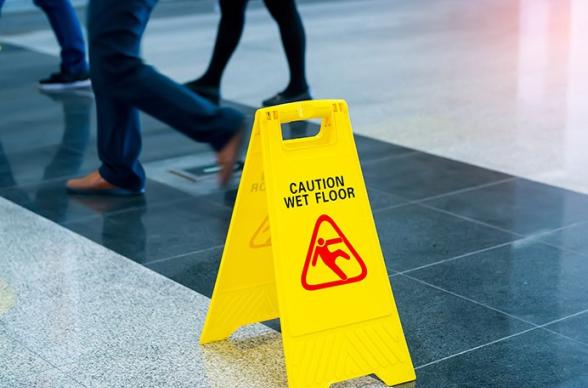What insurance does a sole trader need?
Protection for the self-employed
In 2017, there were 4.3 million non-employing businesses in the UK, accounting for 79% of the overall 197,000 increase in businesses that year, according to FSB (external link). It would seem we’re becoming a nation of sole traders, and there’s a wide range of insurance available to help small business owners reassure their clients or simply sleep more soundly at night knowing their business is covered for common risks.
So, if you’re a one-man-band, what sort of insurance could you benefit from?
Online quote in 5 minutes
Get a quote
Defining a sole trader
When we use the term ‘sole trader’ we are referring to both self-employed individuals who work on their own and also businesses which are set up as a sole trader legal structure (this means the individual who runs the business takes sole responsibility for any losses and can keep all profits after tax). This type of legal business structure makes up nearly two-thirds of all businesses, according to government figures (external link). To learn more about the differences, read our sole trader vs. self-employed FAQ here.
The two types of sole trader are often lumped together, but plenty of sole trading businesses actually employ people, whilst on the other hand, lots of freelancers with no employees set up limited companies rather than a sole trading business. In both circumstances, it's important to understand what cover you require - read our guide to freelancer insurance to learn more.
Sole trader insurance requirements
When it comes find the right insurance for the self employed, we tend to see two types of sole trader. The first buy insurance because a client requires them to; the second buy it simply because they are aware of the risks they might face and feel more comfortable having insurance.
Contractual requirements
For many freelancers and professionals, the terms of their contracts stipulate that they must be insured. Many large corporates and local authorities expect their contractors to be covered as a matter of course, normally for Professional indemnity and Public liability insurance.
Smaller companies and individuals can also require it, particularly if the work involves sharing sensitive information with a contractor, such as personal data or intellectual property.
It’s important to understand which kind of insurance your client requires, including the limit or amount of coverage they expect you to have. It can also be a good idea to find out if certain types of insurance are commonly expected in your industry or line of work and, if so, get an idea of prices and providers so you can budget accordingly.
For peace of mind
The other group who commonly buy insurance is the “what if” kind of people – those who lie awake at night and think about what could possibly go wrong with their new firm. You might have heard stories about fires or professional disputes from friends or colleagues and thought, “What if that were me? What if I had an illness or injury that prevented me from working? What if my computer and laptop were stolen?”
There are many different types of insurance available to give sole traders peace of mind, from personal accident or income protection if you’re unable to work, to professional indemnity and public liability insurance, which cover you against claims from other people.
Things to consider when choosing sole trader insurance
With numerous different sole trader and freelance policies on the market, it can be hard to decide which one suits your needs best. Here are some issues to consider before deciding which coverage you should buy:
What’s the worst that could happen?
It often pays to be pessimistic. The worst-case scenario is very unlikely to happen, but it’s worth knowing that if it did, you’re covered. If you’re worried about damage to your office, then add up how much it would cost to replace all your equipment in event of a fire or burglary and buy at least that amount of coverage. Or if you want insurance against being sued, then you should think what could be the worst-case scenario: perhaps a lawsuit from a major corporate client, or someone being injured in an accident on your premises?
Does your home insurance cover business property?
You shouldn’t assume that your home contents insurance would pay out if you spill coffee on your work laptop or if a flood in your basement destroys your stock. Many home insurance policies exclude business property or commercial activity. First, check the policy wording of your home insurance policy, and then think about a business insurance policy to plug any gaps in cover.
What’s the best policy you can afford?
You can buy liability insurance coverage up to £1 million, £2 million, £5 million or £10 million. These might sound like huge amounts, but often the difference in price between several million pounds of additional coverage is tens or hundreds of pounds, so it’s worth getting a range of quotes to see which you can best afford.
What is your potential liability?
A good rule of thumb for thinking about your potential liability is the value of your largest contract. The bigger it is, the more important it’s likely to be to your client. That means there’s a bigger downside if something goes wrong. Also, who is your client? A multinational corporation with a large team of in-house lawyers is more likely to sue if a dispute arises than a small firm in your local area who you’ve been working with for many years.
All sole traders are unique and while your business will have different needs, there are often common themes when it comes to ensuring you have the right cover. Having commercial insurance in place can provide peace of mind to let you concentrate on other aspects of your business, whether you’re a freelancer or a business with several employees.
Tell us about your business – We’ll build your quote and explore your insurance needs
Start your quoteRelated guides & FAQs
Other FAQs to consider
Disclaimer:
Our FAQ pages provide general information and background around the topic covered. FAQ pages are reviewed and monitored periodically by our insurance experts. But the content is not intended to be read as advice and any material is for general information purposes only. If you would like advice for any content, please seek professional assistance.


